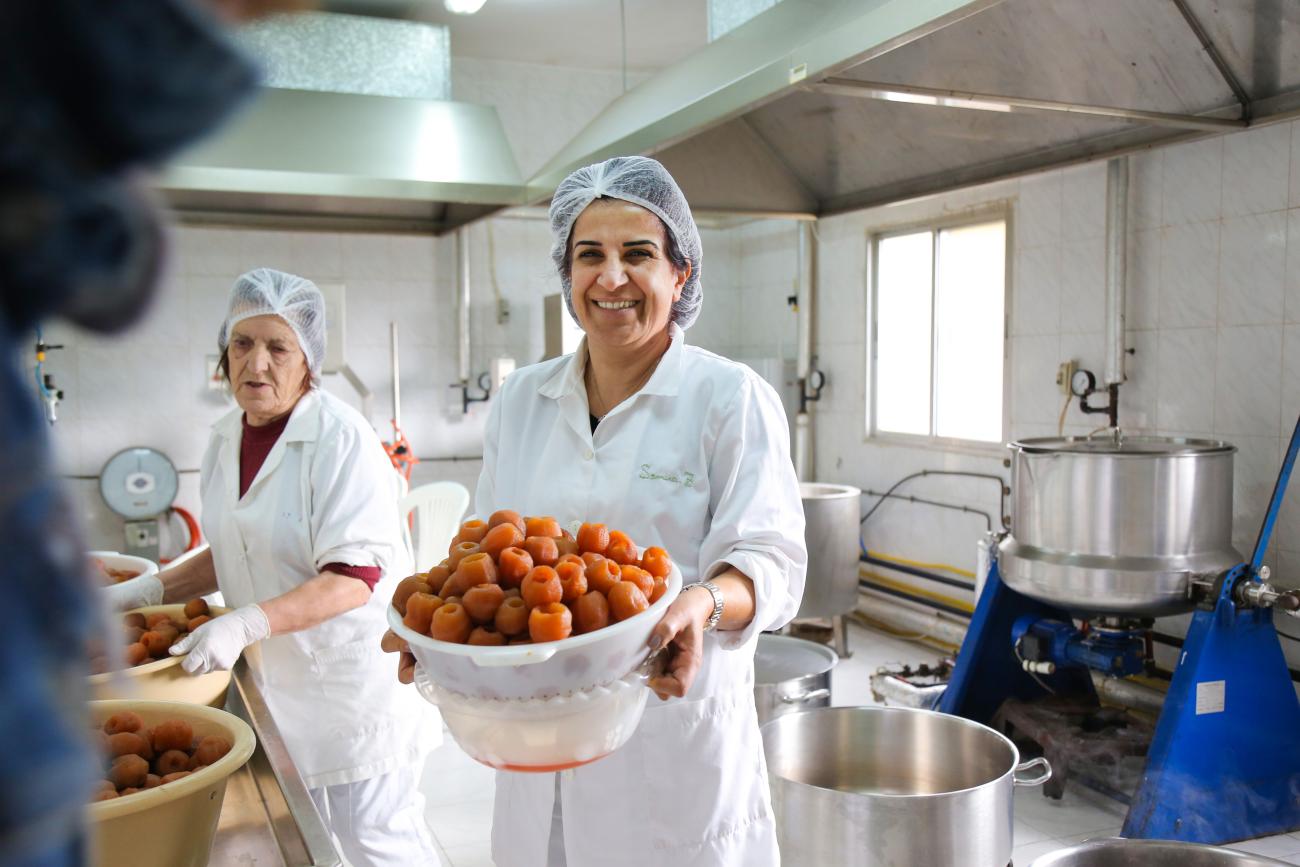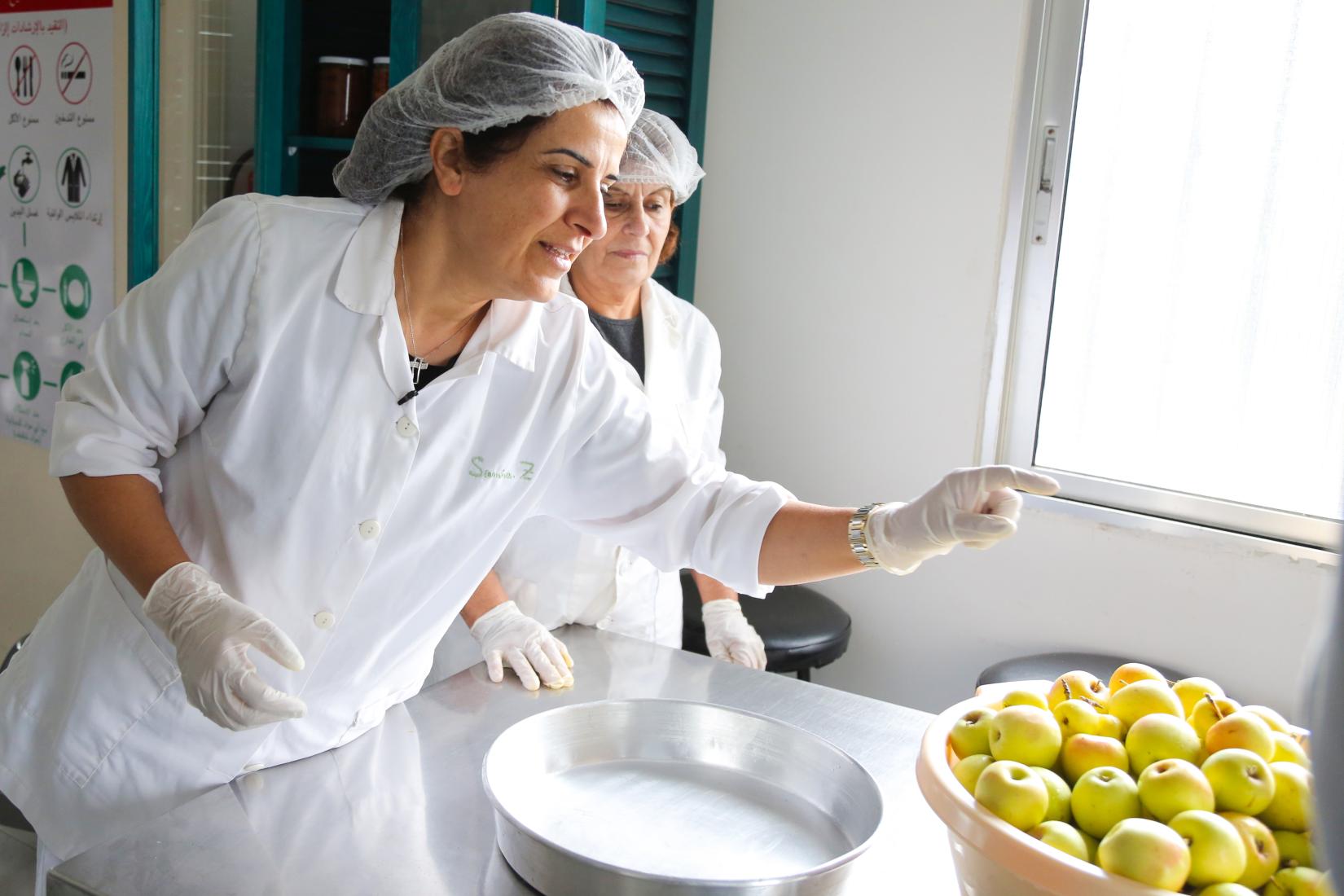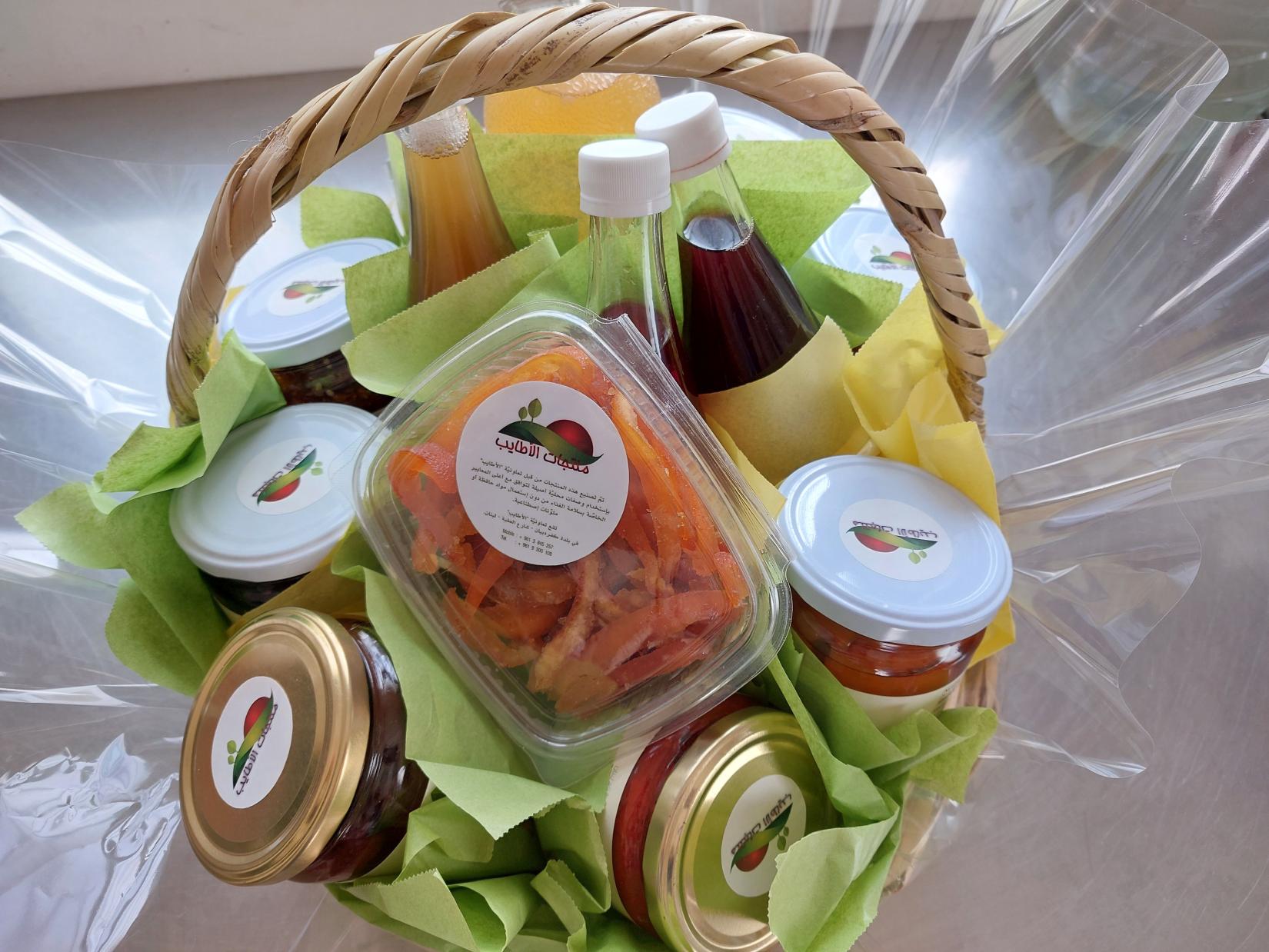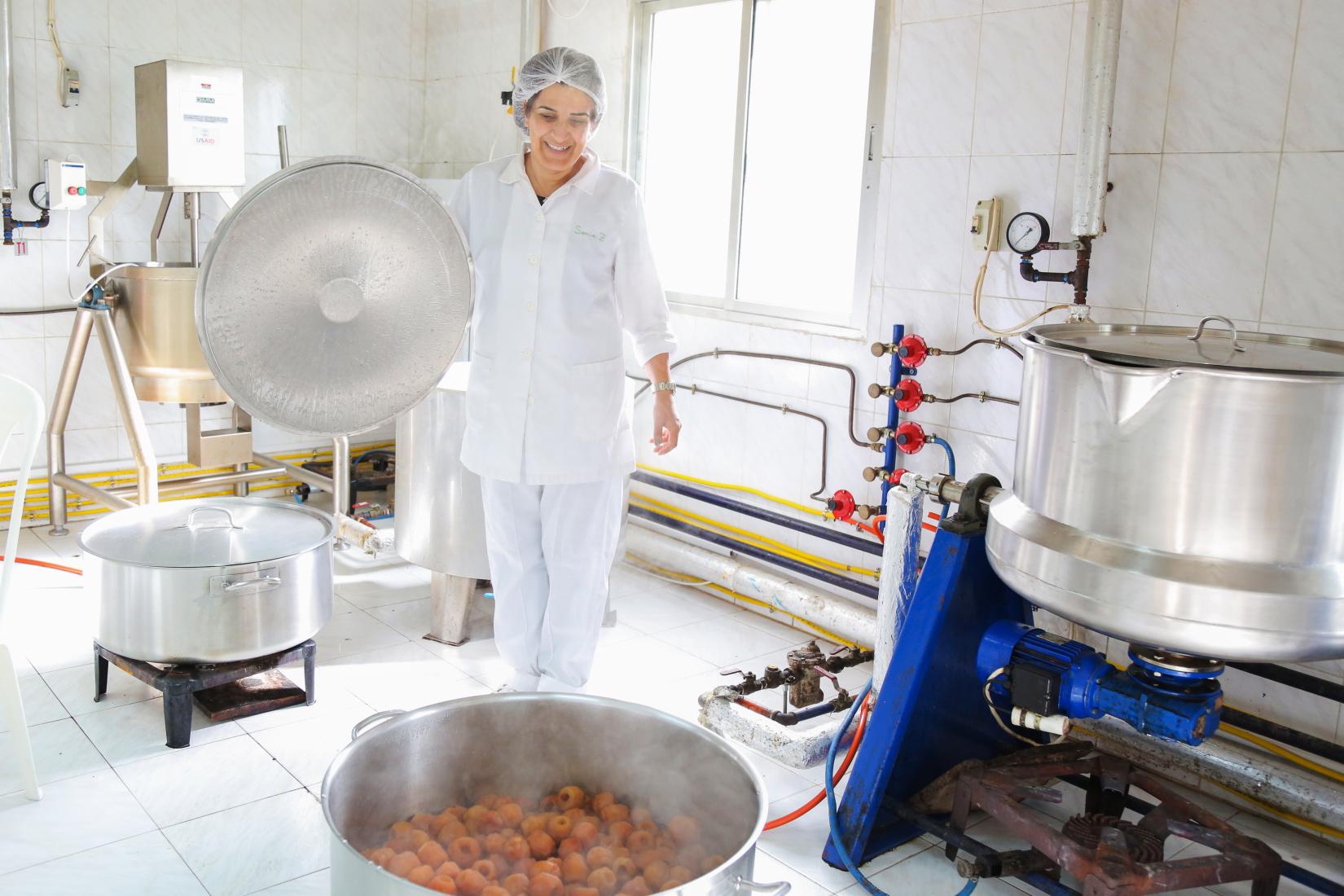UN Lebanon Supports Women-Led Cooperatives: Sustaining Productivity Amid Consecutive Crises

.
"I enjoy teaching other women food processing techniques and helping my neighbors find income generating opportunities. A lot of women across Lebanon are doing the same thing," says Samira Zoughaib Akiki, 58, the chair of Al Atayeb cooperative located in Kfardebian town, north of Beirut, Lebanon. In 2004, Samira and some other women established Al Atayeb (The Delicacies) cooperative to support their local community.
Samira’s Early Days in Food Processing
Samira began her career as a French language teacher at a local school in Kfardebian before she decided to follow her passion for cooking. One year later, in 2003, Samira resigned from teaching to enroll in a training for sewing and embroidery that Young Men's Christian Association (YMCA) non-governmental organization (NGO) was organizing. As she interacted with more women, Samira realized that women villagers have very good food processing skills and that they are willing to share their knowledge. She worked with YMCA on introducing food processing workshops and eventually became a trainer in food processing. “Teaching other women food processing skills was my way of women empowerment. It also empowered me given that I was surrounded by generous women with a vision,” Samira says with a nostalgic tone.

The Cooperative Model
Although Samira enjoyed her work as a trainer, she was not fully satisfied; she wanted to do something more impactful for her community. "Knowing that locals obtain valuable agricultural and food processing skills and expertise, my colleagues and I decided to form a cooperative specialized in food processing. We believed that it would be the best business model because it helps create job opportunities for locals and divides profits equally among shareholders," Samira says.
Al Atayeb is a women-led cooperative specialized in producing Lebanese local and traditional food, such as citrus marmalade, fruit jam, fruit paste, and the famous Lebanese Makdous (Pickled eggplants in oil), and it follows the FDA criteria of food safety.

Today, the cooperative involves 13 women from various age groups who work in food processing. These women are also shareholders so they receive a share of the cooperative's profits, in addition to the salary they earn from working in food preparation and processing. “A cooperative serves the maximum benefit of the largest number of people possible, and it is a participatory form of group work that is rich with perspectives and ideas," she says.
The cooperative also supports farmers through buying their local crops and provides job opportunities to local workers who can perform necessary logistic and technical tasks that food processing requires.
UN Lebanon Supports Cooperatives
Similar to many cooperatives across Lebanon, Al Atayeb faced challenges that threatened its sustainability during the first months of the COVID-19 pandemic, when Lebanon was also reeling under the economic crisis. Not knowing how to counter the challenges, Samira and her partners learned that UN Lebanon was providing support to cooperatives across Lebanon and reached out for support.
UN Lebanon, with funds from the German Development Bank KfW, and through the UN Development Programme, mobilized 4.4 million USD to reduce the downturn impact of COVID-19 on cooperatives, Small and Medium Enterprise (SMEs), and farmers. Under this project, UN Lebanon supported 94 cooperatives from different villages in Lebanon such as Deir Al Ahmar, Fneidek, Qana, Harissa, and Lehfed, with a focus on women, by providing cash for work and in-kind support such as raw materials, equipment, and tools. At least 6,000 individuals in Lebanon benefitted from this project, which helped them cope with the consecutive crises: the COVID-19 pandemic, the financial crisis, and the notorious August 4 Beirut Port Explosion.

For Al Atayeb, "the UN provided monthly salaries for women to sustain their income, in addition to oil and sugar we use to produce our food, as well as the jars necessary for preserving produce," Samira says. "The type of assistance that the UN provided was very efficient because it addressed our financial needs; thus, replenishing our capital and compensating our losses. We were able to resume our activities at a time when many businesses were shutting down.”
By creating direct and indirect job opportunities, Al Atayeb cooperative has been a key factor in helping many families in Kfardebian survive the crises, making women proud of themselves and their community. "Our cooperative represents the values we believe in. We work with passion. We help our community and serve the public good," Samira says with a pride in her voice.



